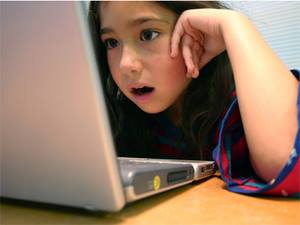Project: Organizational development grant from the Think Tank Fund10May2016
UNICEF Survey on Parental Awareness of Online Child Abuse Risks
UNICEF presented key findings of the project Advancements of Policy and Legal Framework in the field of Prevention and Protections of Children against Digital Violence, conducted within the Global Programme for Capacity Building in Combating Sexual Exploitation of Children Online.
 According to the results, more than 85% of children between 8-17 years who use the Internet spend online more than an hour; more sprecifically more than 43% of them use the Internet two or more hours daily. Time spent online increases with children's age, particularly for the age group 10-11 years. Based on parents' perceptions, children's attention on the Internet is by-large occupied by entertainment and communication with peers on social networks. PC games are the content which primarily amuse boys; nevertheless the games become less popular among older boys (15 years onwards). Communication on social networks occupies older children (12 years onwards). In particular, it represents everyday online activity for 70% of children between 14-17 years. Private (e-mail) communication gains importance at latter stage (15 years and older).
According to the results, more than 85% of children between 8-17 years who use the Internet spend online more than an hour; more sprecifically more than 43% of them use the Internet two or more hours daily. Time spent online increases with children's age, particularly for the age group 10-11 years. Based on parents' perceptions, children's attention on the Internet is by-large occupied by entertainment and communication with peers on social networks. PC games are the content which primarily amuse boys; nevertheless the games become less popular among older boys (15 years onwards). Communication on social networks occupies older children (12 years onwards). In particular, it represents everyday online activity for 70% of children between 14-17 years. Private (e-mail) communication gains importance at latter stage (15 years and older).
Among parental concerns, online risks are highly ranked. Exposure to inappropriate contents (43%) and online contacts with strangers (40%) are the most dangerous risks from the parental point of view. Almost 65% of parents consider Internet and other mobile applications as unsecure and dangerous for their children. This attitude is far more spread among parents with lower educational status. At the same time, most parents (73%) did not express a personal concern that their child is directly exposed to any particular form of online risk, misuse, and/or abuse.
The Public Policy Research Centre also published a policy brief on the digital security of children in Serbia. It emphasized that by the Law on Information Security enforcement and by the creation of a govermental body for coordination of information security affairs conditions to unanimously address children's exposure to online risks have been created have been created. Simultaneously, these conditions have provided an opporunity to launch a national raising awarness campaign that would inform children, parents and teachers about safe ways of using the Internet. The policy brief is available in Serbian under the following link.



